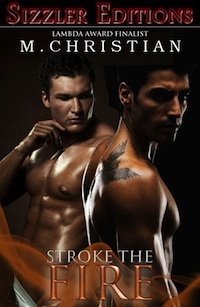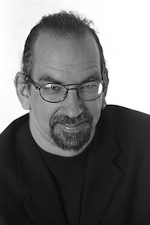The Right Word
“The difference between the almost right word and the right word is really a large matter — it’s the difference between the lightning bug and the lightning.
— Mark Twain
No insult to Mr. Twain (Samuel Langhorne Clemens to his pals), but he’s a bit wrong there … but, more importantly, a lot right.
Wrong in when writing, slaving over just the right word can, too often, grind the process to a halt. When I hit that speed bump I usually just put the word I know isn’t the perfect, ideal, and – yep – right I just highlight it so I know, when I look over whatever I’m writing I can come back and fix it later. The key to keeping up your flow is not just writing well but to keep writing. Period. It’s far too easy to let niggling details get in the way of where you’re doing, and what you’re saying: it’s far better to just keep at it and then come back and do some tweaking after.
But Sam (Mark Twain to everyone else) is damned right about the damned right word. It’s been a very strange trip, going from writer to editor and, now, to publisher: I see a lot of things I wish that writers would get into their heads – and, similarly, try to get into my own thick noggin. The number one has to be to show and not tell: in more words, rather than less, it’s far better to be evocative and imagination-feeding than completely, unarguably, accurate.
Let’s try something: the brown chair. Not much there right? We know it’s a chair, we know it’s brown. End of story. But what if I wrote, “the chair was the color of a well-worn dirt road”? Immediately you not just see the chair but might even feel a bit about it: the road, and it’s color, overlaid with an image what a chair like that might look like, feel like, smell like, etc.
It’s far better to conjure the chair, with magical language and imagery, than carry it onto the stage. You can so much with so little if you take the time to think of words, and language, that is evocative and alluring that unarguably precise. The same, naturally, goes with sex: rather than saying that, say, someone’s breasts were perfect, or conical, or whatever shape you’re thinking of, try, instead to say they were “happily rich and full, tipped by the inquisitive arousal of umber nipples.” Okay, that might be a bit too much but I think you get my point: the first was dull, boring – the second says so much more happily at that.
Additionally, I’ve seen far too many stories cross my desk (as both an editor and a publisher) where the author thinks that they have to not just set that stage but show the reader every little board and nail. I have a little joke I tell when I teach writing (smut or otherwise): avoid the scroll. The origin of the joke it the way some movies – and far too many books and movies – feel that they have to spell out the world, the setting before even showing a single character, setting, or hint of a conflict. In movies it shows up as a literal scroll of what’s going to happen. Sure, it can be good – even very well written (The Road Warrior is a perfect example) — but far too many times it goes on too long and says far too much. It is far better to simply start the story with us, the reader/watcher, right in the middle of it.
For instance, what’s more effective…
A: Robert Sharpe West was 56 years old, a little overweight, with a full shock of dark hair. His job for the Central Intelligence Agency was to take care of their problems. One of those problems was named Anne Smith. She had taken something that didn’t belong to her and so it was up with Robert Sharpe West to get it back…
B: The first bullet exploded in impact an foot from his head, two centuries of Roman architecture splintering into a dusty bloom that bit his eyes, burned his cheek, and filled the air between him and the shooter with a cloud of dust – a cloud hiding the second bullet: the one that hit the wall, again, right where he’d thrown himself, where he’d been standing before twenty years experience hadn’t screamed in his ear move, damnit, move!
 Okay, that wasn’t exactly brilliant but what do you expect for something tossed off pretty quickly. But I think you get my point: the first scene is – yawn – pretty damned dull. The second, however, gets the shit across pretty dramatically. The same, of course, is true of erotica: we don’t need to know the characters’ heights, weights, job histories, what they are wearing, where they went to school … zzzzzzzz … sorry, I nodded off a bit there. What we do need to know is who they are in a way that immediately, and evocatively, draws the reader immediately into the story. Don’t worry, if it’s important you want always dribble in the facts and figures and histories and all that other stuff as the story progresses – you just don’t need to begin the story by standing on stage and reading a dry scroll. Drop us right into the middle of it, with guns – or genitals – a blazing!
Okay, that wasn’t exactly brilliant but what do you expect for something tossed off pretty quickly. But I think you get my point: the first scene is – yawn – pretty damned dull. The second, however, gets the shit across pretty dramatically. The same, of course, is true of erotica: we don’t need to know the characters’ heights, weights, job histories, what they are wearing, where they went to school … zzzzzzzz … sorry, I nodded off a bit there. What we do need to know is who they are in a way that immediately, and evocatively, draws the reader immediately into the story. Don’t worry, if it’s important you want always dribble in the facts and figures and histories and all that other stuff as the story progresses – you just don’t need to begin the story by standing on stage and reading a dry scroll. Drop us right into the middle of it, with guns – or genitals – a blazing!
While picking just the right word can, sure, slow things down, Sam (Or Mark) is more completely right than wrong: try – always try – to bring down the literary lightning, instead of describing the boring details of a photinus carolinus. A flash of brilliance, after all, is always much more beautiful that just describing a glowing little bug.
*****
 Calling M.Christian versatile is a tremendous understatement. Extensively published in science fiction, fantasy, horror, thrillers, and even non-fiction, it is in erotica that M.Christian has become an acknowledged master, with more than 400 stories in such anthologies as Best American Erotica, Best Gay Erotica, Best Lesbian Erotica, Best Bisexual Erotica, Best Fetish Erotica, and in fact too many anthologies, magazines, and sites to name. In erotica, M.Christian is known and respected not just for his passion on the page but also his staggering imagination and chameleonic ability to successfully and convincingly write for any and all orientations.
Calling M.Christian versatile is a tremendous understatement. Extensively published in science fiction, fantasy, horror, thrillers, and even non-fiction, it is in erotica that M.Christian has become an acknowledged master, with more than 400 stories in such anthologies as Best American Erotica, Best Gay Erotica, Best Lesbian Erotica, Best Bisexual Erotica, Best Fetish Erotica, and in fact too many anthologies, magazines, and sites to name. In erotica, M.Christian is known and respected not just for his passion on the page but also his staggering imagination and chameleonic ability to successfully and convincingly write for any and all orientations.
But M.Christian has other tricks up his literary sleeve: in addition to writing, he is a prolific and respected anthologist, having edited 25 anthologies to date including the Best S/M Erotica series; Pirate Booty; My Love For All That Is Bizarre: Sherlock Holmes Erotica; The Burning Pen; The Mammoth Book of Future Cops, and The Mammoth Book of Tales of the Road (with Maxim Jakubowksi); Confessions, Garden of Perverse, and Amazons (with Sage Vivant), and many more.
M.Christian’s short fiction has been collected into many bestselling books in a wide variety of genres, including the Lambda Award finalist Dirty Words and other queer collections like Filthy Boys, BodyWork, and his best-of-his-best gay erotica book, Stroke the Fire. He also has collections of non-fiction (Welcome to Weirdsville, Pornotopia, and How To Write And Sell Erotica); science fiction, fantasy and horror (Love Without Gun Control); and erotic science fiction including Rude Mechanicals, Technorotica, Better Than The Real Thing, and the acclaimed Bachelor Machine.
As a novelist, M.Christian has shown his monumental versatility with books such as the queer vamp novels Running Dry and The Very Bloody Marys; the erotic romance Brushes; the science fiction erotic novel Painted Doll; and the rather controversial gay horror/thrillers Fingers Breadth and Me2.
M.Christian is also the Associate Publisher for Renaissance E Books, where he strives to be the publisher he’d want to have as a writer, and to help bring quality books (erotica, noir, science fiction, and more) and authors out into the world. His site is www.mchristian.com